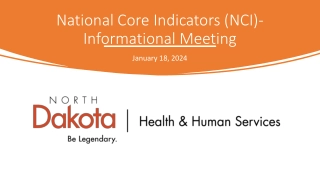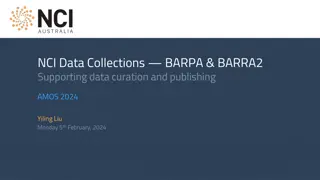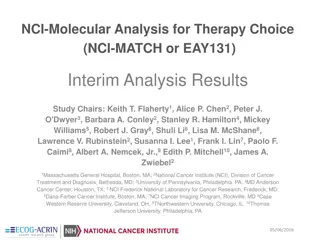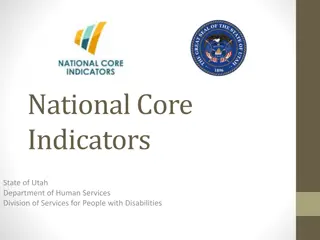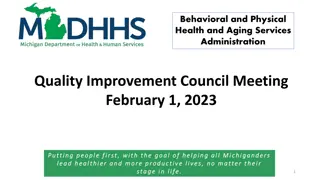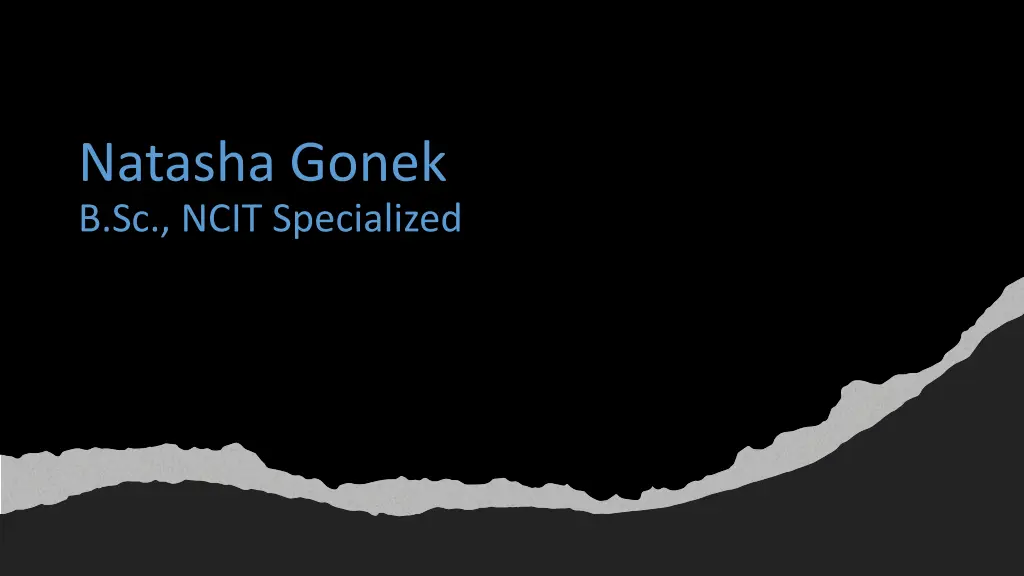
Professional Background in Investigative Interviewing and Health Regulation
Natasha Gonek, with a Bachelor of Science in Biological Sciences and a minor in Psychology, has a diverse background ranging from establishing heart valve procurement programs to being a certified tissue banking specialist. Her regulatory responsibilities include ensuring the protection of the public interest. She currently serves as a consultant, advisor, and advocate. Natasha's expertise also covers investigative interviewing, workplace health and safety, crisis intervention, and more.
Download Presentation

Please find below an Image/Link to download the presentation.
The content on the website is provided AS IS for your information and personal use only. It may not be sold, licensed, or shared on other websites without obtaining consent from the author. If you encounter any issues during the download, it is possible that the publisher has removed the file from their server.
You are allowed to download the files provided on this website for personal or commercial use, subject to the condition that they are used lawfully. All files are the property of their respective owners.
The content on the website is provided AS IS for your information and personal use only. It may not be sold, licensed, or shared on other websites without obtaining consent from the author.
E N D
Presentation Transcript
Natasha Gonek B.Sc., NCIT Specialized
Background Bachelor of Science Biological Sciences and a minor in Psychology Work History Capital Health Authority Comprehensive Tissue Centre Established Heart Valve Procurement Program National Certified Investigator Training: CLEAR Basic and Specialized Investigative Interviewing Training Investigation Interviewing- Crimes Against Children Training: Edmonton Police Service EPS Victim Services Unit Crisis Intervention Volunteer First Responder to Sexual Assault and Abuse Training: Association of Alberta Sexual Assault Services Workplace Health and Safety Advisor Certified Tissue Banking Specialist: American Association of Tissue Banking Business owner/operator residential construction and design Government of Alberta: OH&S Training Office of the Chief Medical Examiner Investigator Edmonton Police Service: Victim Services, PTSD, Peer Support Canadian Military - Land Force Western Area (LFWA): Critical Incident Stress Peer Facilitator/Educator Training Alberta College of Paramedics, Senior Advisor Complaints and Investigations University of Alberta: Organizational Behavior, Accident Control, Physical Security Planning College of Registered Nurses of Alberta, Investigations Officer Canadian Mental Health Association: ASIST- Suicide Prevention Training Currently Consultant/Advisor/Advocate
Regulatory Structure & Responsibilities Colleges are private, not Colleges are private, not- -for as the self as the self- -governing bodies for professions under the HPA governing bodies for professions under the HPA for- -profit corporations created and designated profit corporations created and designated Mandate College must carry out activities and govern its regulated members in a manner that protects and serves the public interest (sec 3(1)(a) HPA) Activities Provide direction and regulate the practice of regulated members Establish Standards of Practice, Code of Ethics Establish, maintain & enforce standards for registration & continuing competence Approve programs of study and education courses for registration requirements Must not set or negotiate fees for treatment/service Funding Colleges are 100% funded by members fees. Main Functions: registration, competence, practice, professional conduct
Fee Information Healthcare professionals in many fields use billing codes to charge the health system for the patient care they provide. Healthcare professionals know it is their obligation to ensure they only perform and bill for care the patient requires and consents to receive. Regulatory bodies are responsible for ensuring regulated members follow proper billing practices and investigate complaints related to improper or fraudulent billing practices. Regulatory bodies are also responsible for cautioning their members or government in the event a fee-for-service may put their members into a position of an ethical or practice violation. Covid-19 Vaccine related examples of new fee-for-service Physicians Alberta Health Care Insurance Plan Covid-19 Vaccine Awareness Program (CVAP) for Physicians Pharmacists Alberta Covid-19 Pharmacy Immunization Program (ACPIP)
Whose interest did regulators act in when they directed members to ONLY convey the government and health authorities messaging? Interference in the patient/practitioner relationship in directing the treatment of the patient. Regulators censorship of members who were discussing informed consent, that were questioning speaking points from government and employer policy Failed to properly communicate to the public and membership Fear based communication, threats of discipline, threats of practice permit removal, discouraged open discussion and research into best clinical practice. Encouraged the reporting of members that were not keeping to talking points from employer Where were those that are oversight for the regulators? Regulatory Failures
Government, Regulators, Health Officials, Media armed medical professionals, other professionals, and employers with messaging that convinced them that it was acceptable to violate their code of ethics, standards of practice, and the laws of our province and country all under the guise of public safety . Final statement Those people then used their freewill to chose to act as agents to inflict harm (mental, physical, psychological and financial) on patients, their families, employees, customers and their friends. The level of harm I have witnessed in our population could and should have been stopped and this is where governance failed. The public must seek to have Independent, Multidisciplinary Investigation Teams assigned to conduct audits and investigations.
If time present additional info in next slides
March 30, 2020 Office of the Chief Medical Examiner Bulletin April 25, 2020 - AHS Covid-19 Scientific Advisory Recommendations on the Handling of Deceased Persons (updated on October 9, 2020) July 17, 2020 - Public Health Review Committee meeting September 17, 2020 - AHS Covid-19 Scientific Advisory Attitudes and Adherence to Covid-19 Measures Government of Canada Immunization Partnership Fund https://www.canada.ca/en/public-health/services/immunization- vaccine-priorities/immunization-partnership-fund.html Timeline Evidence
One of the things, though, Id like to point out is that it s important to note that we need to keep the Public Health Act current and ready to address any unknown or known threat to the health of Albertans, and one example I d like to put forward is that we know, for example, that the threat of bioterrorism such as the use of weaponized smallpox is a real concern. There are countries elsewhere in the world which have the power to do that. We also know that new infectious diseases will continue to emerge such as SARS, Ebola, and MERS, all of which are far more deadly than COVID but, thankfully, do not transmit as easily as COVID does. Trish Merrithew-Mercredi, Assistant Deputy Minister, Public Health and Compliance Statement from Assistant Deputy Minister of Public Health and Compliance at the July 17, 2020 Public Health Act Review Committee Meeting (from meeting transcript)


